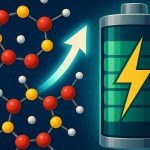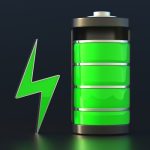Stanford scientists create next-generation high-voltage battery material
A team of Stanford University researchers has achieved a major breakthrough that could reshape the future of energy storage, MRI technology, and even magnetic...
New 3D battery design could make electric cars safer and drive 70% farther
As electric vehicles (EVs) continue to grow in popularity—now numbering around 40 million worldwide—scientists are working hard to make their batteries safer and longer-lasting.
While...
Perovskites unleash ultrafast quantum light, opening a new era for photonics
A material best known for its promise in affordable solar cells has just revealed another astonishing talent — producing light at incredible speeds.
Scientists have...
Scientists create artificial tongue that uses milk to measure spiciness
Anyone who has bitten into a fiery chili pepper knows that appearances can be deceiving — a sauce that looks mild might actually set...
Harvard engineers create smart fabric that adapts to wind like a golf ball
Imagine wearing a cycling jersey or ski suit that automatically adjusts to the wind to help you move faster.
This futuristic idea is becoming reality...
Dirty water can make clean hydrogen—And cut costs by 47%, study finds
In a breakthrough that could make clean energy more practical and affordable, researchers at Princeton University have found a way to use treated wastewater—rather...
How rare nuclear reactions in dying stars create gold and platinum
Where does gold really come from?
It turns out that the glittering metal on Earth has its roots in violent cosmic events — like exploding...
3D-printed twisting metal could make car crashes much safer
Scientists from Scotland and Italy have created a new type of 3D-printed material that could greatly improve safety in car crashes.
The material, made from...
How a unique atomic structure could end battery overheating forever
Engineers at the University of California, Riverside, have discovered why a promising solid-state battery material stays cool even when it’s hard at work—a finding...
Scientists find a green way to recycle non-stick Teflon into useful materials
Teflon—the famous non-stick coating found on frying pans and countless industrial products—has long been considered nearly impossible to recycle.
But now, scientists in the UK...










